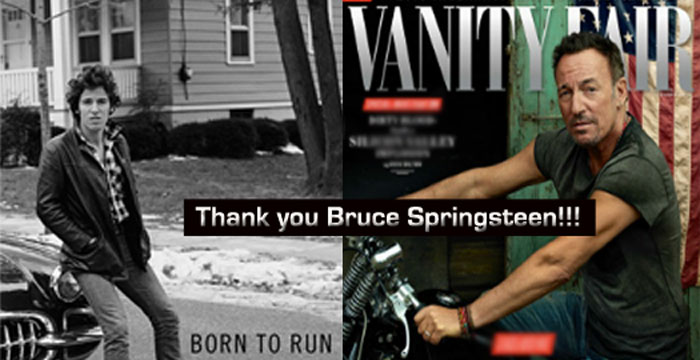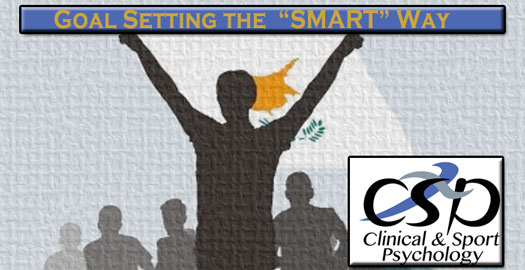Thank you Bruce Springsteen!!!
I am a huge fan of Bruce Springsteen. I was turned onto his music later in life and was hooked for many reasons. His lyrics have depth, he employs the use of imagery well, and he just plain ROCKS. I have often said “Bruce has a song for each developmental stage in life”. To see him live in concert with the E Street band is powerful and energizing as they play for almost four hours while younger bands fade away in less than half that time. More recently, I was given yet another reason to like him as a musician and a person. The article in Vanity Fair reaffirmed my assessment of his fortitude, genuine nature, and expertise as a writer. In the present article, and more recent book release Born to Run: Bruce Springsteen, he grants his fans access to the vulnerable side of himself. I have highlighted some of the article that discusses his struggle with depression as well as some of the factors that play a role in the development, treatment and recovery from it.
Different Sides of Oneself
“Whoever you’ve been and wherever you’ve been, it never leaves you,” he said, expanding upon this thought with the most Springsteen-esque metaphor possible: “I always picture it as a car. All your selves are in it. And a new self can get in, but the old selves can’t ever get out. The important thing is, who’s got their hands on the wheel at any given moment?”
My comment: This is a very powerful metaphor. Present day mindfulness theory states that we should accept ourselves and remain aware of “who is driving the bus”. We can get into greater peril when we attempt to push away parts of ourselves that we are uncomfortable with in life. Bruce has managed to find a voice for each part of himself and write about it. Part of managing our emotion is paradoxical. We need to build acceptance of negative emotions in order to bring about positive change.
Teenage Years
Van Zandt (his guitarist from the E Street band) remembers the Springsteen he befriended in their teens as “shut down and closed in.” …… “People were always wondering ‘Why are you hanging out with him? He’s such a weirdo.’ Some people thought he was mental.”
What Van Zandt quickly came to realize was that Springsteen was preternaturally focused, regarding rock music as his only way forward. “What inspired me about him, which nobody could really understand, was that he was completely dedicated,” Van Zandt said. “He’s the only guy I know who never had another job. I had to do some other jobs and fight to do it full-time, where he was always full-time. I got strength from that.”
My comment: As a teenager, he was more introverted “shut in” and presented himself as different from his peer group. Usually, introverts have more internal thoughts that can provide stimulation. Being introverted does not automatically render a person weird or mentally ill. Introverts do not need a group to be entertained like extroverted people do. Additionally, some may have seen his drive to create music as a weakness while others (Van Zandt) saw it as a strength from which he gained inspiration. He was spending much of his time becoming a musician and performer in his industry. Bruce’s dedication and focus brought great success as a musician.
Depression
“Over the years, Springsteen has been forthcoming about the fact that he is prone to depression, for which he has sought relief through both therapy and antidepressants. In the book, he delves more deeply still into the subject. There is his clinical depression itself, he explained to me, and then a compounding fear that he is doomed to suffer as his father did. “You don’t know the illness’s parameters,” he said. “Can I get sick enough to where I become a lot more like my father than I thought I might?”
My comment– Psychotherapy and medication management combined result in the alleviation of symptoms. For long term effectiveness, it is important to be actively engaged in the therapeutic process of behavior change. Too often people are under the impression that medication “is” the treatment; however, research does not support that claim.
On a different note, Springsteen’s experience of depression makes him concerned about its depth as well as the additive effects of worry regarding its future course.
Productivity
Springsteen remained professionally productive during these periods, however, and he says that he recorded his fine 2012 album, Wrecking Ball, at one of his lowest ebbs, with his bandmates none the wiser. (Though, he grants, the song “This Depression” might have been a tip-off.) But in the privacy of home, he writes, when the blues descend, “Patti will observe a freight train bearing down, loaded with nitroglycerin and running quickly out of track.” Whereupon “she gets me to the doctors and says, ‘This man needs a pill.’ ”
My comment– People think that depression is sedentary. A depressed individual can be productive and experience subsequent lethargic moods. This can be perplexing to the layperson, especially if the depression is not as noticeable or typical. Some individuals are able to stay productive and focused on a specific task or work; however, when work ends, the depression descends upon them again. It all depends on the severity of symptoms.
Father/Son Conflict
To some degree, Springsteen said, he has overcome the issues he had with his father. One of the book’s most moving passages occurs a few days before the 1990 birth of Springsteen and Scialfa’s first child, their son Evan. As was his impulsive wont, Doug (his father) embarked on an impromptu road trip, driving 400 miles south to Bruce’s house in Los Angeles from San Mateo, where he and Adele had made their home. Over beers at 11 A.M., Doug, uncharacteristically, made a small peace offering to his son. “Bruce, you’ve been very good to us,” he said. And then, after a pause: “And I wasn’t very good to you.”
“That was it,” Springsteen writes. “It was all that I needed, all that was necessary.”
I asked him if he ever heard the words “I love you” from his father.
“No,” he said, a little pained. “The best you could get was ‘Love you, Pops.’ [Switching to his father’s gruff voice.] ‘Eh, me, too.’ Even after he had a stroke and he’d be crying, he’d still go, ‘Me, too.’ You’d hear his voice breaking up, but he couldn’t get out the words.”
My Comment– If you have listened to any of Springsteen’s lyrics, you can cut the tension between him and his father with a knife. Their relationship was filled with conflict, especially when Bruce was in his teenage years. Their relationship may have been exacerbated by Bruce’s singular choice to become a musician, a non-conventional career path amongst the working class.
It is also not atypical that men have low expressed emotion. We often have difficulty saying, “I love you”. This appears to be the case between this father and son. What is more important is that they able remedy their relationship. Sometimes, a simple expression of emotion is all that is needed for validation.
Takeaway
It can be difficult to imagine a performer of Bruce Springsteen’s magnitude struggling with depression. The amount of energy and passion with which he plays appears to be diametrically opposed to depression. Perhaps it is necessary for all of us to recognize and redefine the notion of depression. In the end, we are all human and vulnerable to the same things in life. I commend Bruce Springsteen for opening himself up to a larger audience and creating another dialogue about his experience. Hopefully, it will give the strength for other people to address similar negative feeling.
Thank you Bruce!





